Nov 10, 2018 | School News
By Lauren Taylor ’20
On Friday, September 21, Upper School students gathered in Hauser Auditorium to celebrate students who have exhibited exemplary academic achievement in the previous school year.
The ceremony began by recognizing the Pingry seniors who received an honor from the National Merit Scholarship Program for exceptional scores on last year’s PSAT exam. This year, 41 Pingry students were named National Merit Commended Students. Out of that group, 10 Pingry seniors were recognized as National Merit Semifinalists and granted the opportunity to advance as finalists in the spring. Those students were seniors Andrew Beckman, Miroslav Bergam, Abigail Berger, Felicia Ho, Annette Jones, Matthew Keller, Jackson Lubke, Kevin Ma, Paige Maultsby, and Ketaki Tavan.
Following these recognitions, Dean Ananya Chatterji presented the Citizenship Prize, which is given to one recipient from each grade who best embodies the community spirit of the Honor Code. Headmaster Nat Conard presented the Faculty Prize to one recipient from each grade who has shown commendable effort and commitment the past academic year. Finally, Dean Chatterji presented the Scholarship Prize to the student in each grade with the highest academic GPA.
Next, seniors who excelled in math and science were presented with various awards from the respective departments. These awards included the Rensselaer Mathematics and Science Award, as well as the Whitlock Prize for Math.
Mr. Conard then presented the College Book Awards. Each College Book Award is presented to the member of the senior class who best embodies the qualities and values of the particular college named. Brown, Columbia, Cornell, Dartmouth, Mount Holyoke, Penn, Princeton, Smith, Wellesley, Williams, and Yale were the 11 colleges represented this year for the awards.
On behalf of The Justin Society Creative Writing Contest, Ms. Christine Taylor, the chair of the English Department, then announced the winners of the annual competition. Writers submitted their entries last spring, which were then reviewed by the English Department. During the assembly, writers and poets from every grade received awards and honorable mentions for their works of creative writing, poetry, historical fiction, and more.
Breaking tradition, the Cum Laude Society did not announce its new members for the fall of 2018. Rather, all of its members will be inducted in the spring. The ceremony served as a wonderful reminder of the commendable energies that Pingry students and faculty bring to the school every day. The Pingry community congratulates all of the students honored at the ceremony and looks forward to another year of inspiring effort and achievement.

Nov 9, 2018 | Featured, School News
By Zach Trichas ’19
With the start of the new school year, Pingry’s physics wing has been completely redone. The first floor of the wing now offers a collaborative area, with wall-mounted desks underneath the stairs. Unlike the previous stairwell, the new stairs are positioned in order to streamline traffic in the area. These stairs are wider and allow more students to be on it at one time. Next to the stairs, an elevator is currently being built.
Inside the classrooms, there have been a number of changes. Everything, including the walls, desks, chairs, and equipment have been renovated. The classic black chairs that were seen around the physics wing have been replaced by newer blue chairs that offer more flexibility. The rooms have also been restocked with new cutting-edge equipment, which will be used for labs and demonstrations. The older equipment has been moved to the hallway, where it has been placed inside glass cabinets. These now serve as mementos of Pingry’s past.
Other major changes in the physics wing include the office spaces. Before, a majority of the physics teachers were in a single room, while Mr. Drew Burns, Mrs. Jill Law, and Mr. Graham Touhey were in a smaller office that required students to walk through a classroom to get to them. Mrs. Law loves the new changes, remarking that the space “feels open and collaborative.” Now, the offices are spread out on two seperate levels. The office on the second floor also has a new meeting room, similar to the one in the biology wing.
Returning students may also find that the English room on the second floor has been turned into a science room. Previously, this room was used by Dr. Susan Dineen, who retired last year. The room has a plethora of tools, including diagrams and models of the human body and various geological samples. These samples are for the recently added Advanced Geoscience course. The course is divided into two semesters, with one focusing on climate change and atmospheric disasters and the other focusing on tectonic disasters.
The renovations for the physics wing have been well received, with students appreciating how flexible the new space is. “I honestly think the new physics wing is great,” said Evan Taylor (VI). “It feels like there’s a lot more space, and it feels really modern.” The new community spaces and flexible classrooms promote collaboration, and are a welcome addition to the school.
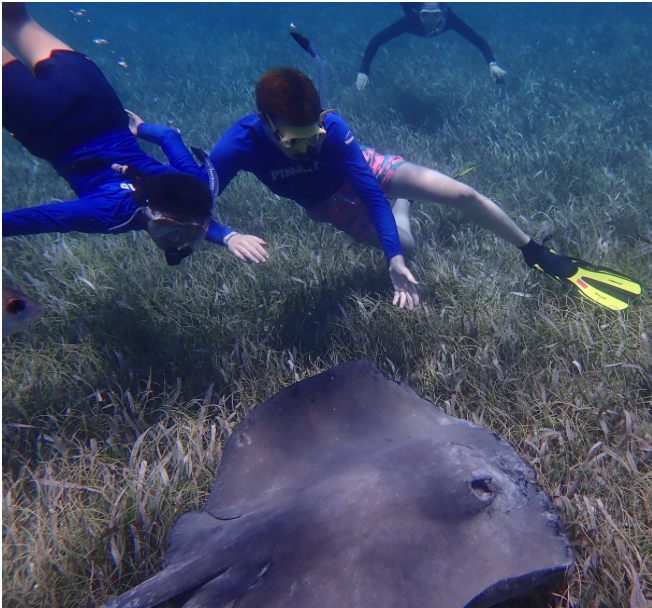
Nov 9, 2018 | Featured, Summer Experiences
By Grace Wang ’21
I took the trip of my life this summer nowhere other than Belize. Making some of my best friends and experiencing nature in an unmatchable environment, the trip changed my life and gave me an opportunity to experience life to the fullest.
I can still envision the sun’s rays peeking through the clearest water I have ever seen. I can still taste the sea on the tip of my tongue. I still feel the water flowing through my fingers. When my eyes are closed and I lay in bed at night I can still imagine myself on the Goliath rocking up and down. Everyone on that boat and I have an everlasting connection because, in our hearts, we’re still on the boat together. I can still sense everything so clearly, though putting these senses into words can’t capture the essence of the trip.
Being underwater, especially in a reef, is a surreal experience. The salt lifts you up and carries you through the water. Life below water and on land are two different universes. The dichotomy between them is what made each of them so special.
On land, we were in our universe. On land, everything is centralized around people. Everything about land has been tweaked and changed to conform to us.
Being underwater for hours at a time introduced me to so much more than just the ocean. When we were underwater, we were on a different planet. The ocean doesn’t change for us; we have to change for the ocean. Seeing all the different species of fish, coral, eel, shellfish, turtles, stingrays, manatees, and sharks, it was clear that for the first time in our lives, we weren’t the center of nature. The ocean is not for us, the ocean is for everything.
In the waters of Belize, it’s important to preserve the reef. We learned to appreciate and understand that humans can’t disturb an environment that isn’t ours. As a group, we worked with Belize TREC on a research project in order to discover whether preserving the waters of Belize truly benefits the species of underwater life. As we researched, we not only uncovered more about the reefs of Belize, we grew closer, developing into a tight-knit family.
Fellow trip-goer Carson Shilts (IV) said, “In Belize, not only was I able to experience a whole different culture, but I also made friends with people who I wouldn’t have met if I hadn’t gone to Belize. The people on the trip made it 10 times better and I cannot even explain how glad I am that I met them and went on that trip.”
Carolyn Coyne (IV) remarked that, “Belize was honestly the best trip I’ve ever been on. From our first time snorkeling and eating bean dip on the boat to playing UNO during our flight delay coming home, I was constantly having the time of my life. It’s hard to describe the trip in words—to really understand how amazing it was. I will be so sad if we don’t go back for ISP.”
In retrospect, I learned so many life lessons on the trip. I’ve learned to relax, to take in life and let it soak. I’ve learned to go with the flow and to not fight the current. I’ve learned to respect the environment. Most importantly, I’ve learned that I can do so much more than I thought I could do. From diving through dark caves and swimming with stingrays and sharks to friendship bracelets and inside jokes, I will never forget this experience.
When I tell people about the trip in all its beauty and complexity, it’s hard for them belize it. But, I’ll never forget the trip of my life.
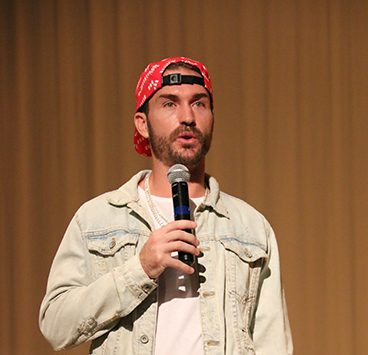
Nov 9, 2018 | Brynn Weisholtz, School News
By Brynn Weisholtz ’20
On Tuesday, October 9, Middle and Upper School students and faculty members convened in Hauser Auditorium to hear Mr. Tony Hoffman, a speaker from Common Ground Speaks. He shared his journey of suffering through addiction to eventually achieving sobriety. Mr. Hoffman’s story began in the seventh grade when he was first exposed to marijuana. It was in high school when his use of drugs, alcohol, and prescription painkillers began to impact his life. Mr. Hoffman candidly discussed how his drug abuse progressed from marijuana usage, the drug he identifies as a “gateway drug,” to heroin, crack, and opiates.
Prior to becoming a drug addict, Mr. Hoffman described himself as a gifted athlete with aspirations to play professional basketball for the NBA. However, he now admits that he did not put forth the effort needed to make this dream a reality. He further described his childhood attitude as entitled; he was always looking to take shortcuts in life in order to reach his achievement as quickly as possible. After realizing that his basketball hopes would not come to fruition, Mr. Hoffman set his sights on BMX racing, a sport he had always excelled at. Soon, he was recognized for his talent and received sponsors and endorsements by his senior year in high school. While his family and friends envisioned a future of success for Mr. Hoffman due to his natural talent in BMX, he was internally struggling with undiagnosed social anxiety, depression, and low self-esteem. These issues, he explained, made it extremely difficult for him to achieve his goals.
In addition to his success in the BMX world, Mr. Hoffman was presented with another opportunity prior to graduation. He was offered a position as a network administrator with a six-figure salary. At that moment, it appeared he had everything: money, respect, and a chance to excel professionally. In actuality, he felt helpless, struggling through his mental illness. Mr. Hoffman’s drug addiction continued to intensify and soon enough his accomplishments began to disappear. With his drug addiction spiraling out of his control, Mr. Hoffman began to see his loved ones and financial stability leaving him. He resorted to robbery to pay for the drugs fueling his addiction and was arrested and imprisoned for two years. While serving his sentence, Mr. Hoffman dedicated himself to self-betterment, knowing he had entered a “door” with only two exits: death or changing everything in his life. He chose the latter.
Upon his release from prison, Mr. Hoffman set forth to achieve the goals he created while behind bars. He was invited to a BMX Olympic training center, started a non-profit foundation, became a coach for BMX Olympians, and, most importantly, he has stayed sober. He kept the attention of students throughout the full hour; Varun Seetamraju (VI) said, “It was great and informative, and I feel like he addressed a topic that needs to be talked about.” Students found his story enthralling, and Drew Beckman (VI) said, “Mr. Hoffman presented his story in a down-to-earth way that allowed the students to connect with him.” Mr. Tony Hoffman has been sober since May 17th, 2007; he now spends his time speaking at different high schools throughout the country helping turn students away from substance abuse and inspiring them to live their lives with purpose.

Nov 9, 2018 | Brynn Weisholtz, Featured, School Trips
By Brynn Weisholtz ’20
On a mighty first day of class trips, the junior class explored the historical sites of Philadelphia and a renowned museum.
Arriving bright and early on an unseasonably hot September morning, the junior class prepared to board coach buses and embark on a trip to Philadelphia. The students gathered in their advisory groups and, upon arriving in the City of Brotherly Love, began a grade-wide scavenger hunt.
Walking around Philadelphia on a search for historical artifacts and buildings, students rekindled friendships from last year while finding everything from jumbo-sized puzzle pieces to the famous Prince Music Theater.
Following the scavenger hunt, the students and faculty made their way to the acclaimed Reading Terminal Market. Celebrating 125 years in existence, the Reading Terminal Market is one of America’s largest and oldest public markets, offering its visitors a wide selection of produce, meats, poultry, seafood, cheeses, baked goods, and much more.
The market is not only a source of locally grown and exotic food choices – it is home to a variety of restaurants and, more importantly, is regarded as a piece of Philadelphian history that draws tourists and locals year round.
As they ate their lunch in the National Historic Landmark Building, which is home to the Reading Terminal Market, the students took some time to relax and rest after their hunt around Philly.
The final stop of the day was to visit the Philadelphia Museum of Art, where the students had an opportunity to walk the halls of the quiet museum and take in all the beautiful works, especially noting the serene water lily paintings and antique Chinese artifacts.
After a full day of touring Philadelphia and spending time learning and laughing with classmates, the students and faculty were ready to return to campus. The students’ day in Philadelphia was undoubtedly the perfect outing to kick off junior year at Pingry.
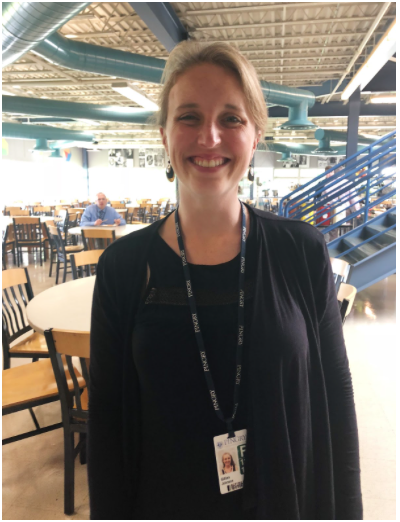
Nov 9, 2018 | Brynn Weisholtz, Faculty + Staff
By Brynn Weisholtz ’20
Among the twenty new faculty welcomed to Pingry this year is Dr. Gillian Johnson, who hails from Hilton Head, South Carolina, where she taught at Hilton Head Preparatory School. She is a graduate of Carleton College in Northfield, Minnesota, where she earned a bachelor’s degree in Spanish, and she went on to receive her master’s degree and PhD in Spanish literature from the University of Virginia.
Dr. Johnson is inspired by both her parents, her grandfather, and her great-grandfather, all of whom had a career in academia. Raised in a family of educators, she has a passion for helping and motivating students to reach their full potential. Dr. Johnson said, “I want to help students develop the same love and appreciation of the Spanish language and culture that I have.”
At Pingry, Dr. Johnson will be teaching Spanish 5, AP Spanish 5, and Spanish 7. She is also the Junior Varsity Field Hockey Assistant Coach. When asked what she likes best about Pingry thus far, Dr. Johnson stated that her favorite parts of the school are the block schedule, lunch, and the students. She shared that the block schedule provides ample time to efficiently prepare for each class, along with some relaxing down-time in between. She loves not having to pack lunch every day and noted how delicious our served lunch is. Regarding the students, Dr. Johnson said, “It feels like students here want to learn and are willing to work hard to accomplish their goals.” The motivation of the students is inspiring to her and she cannot wait to get to know the students and faculty even more. Her main goal for the school year is learning the school song, “Old John Pingry,” so she will be able to sing it with the rest of the community.
Dr. Johnson has limited free time due to her seven-month-old daughter, who she loves spending time with. Besides being a mom, she enjoys running and spending time outdoors.
Señora Johnson, as she is referred to by her students, is thrilled to be a part of the Pingry community and is eager to spread her passion for Spanish, and learning in general, throughout the school.
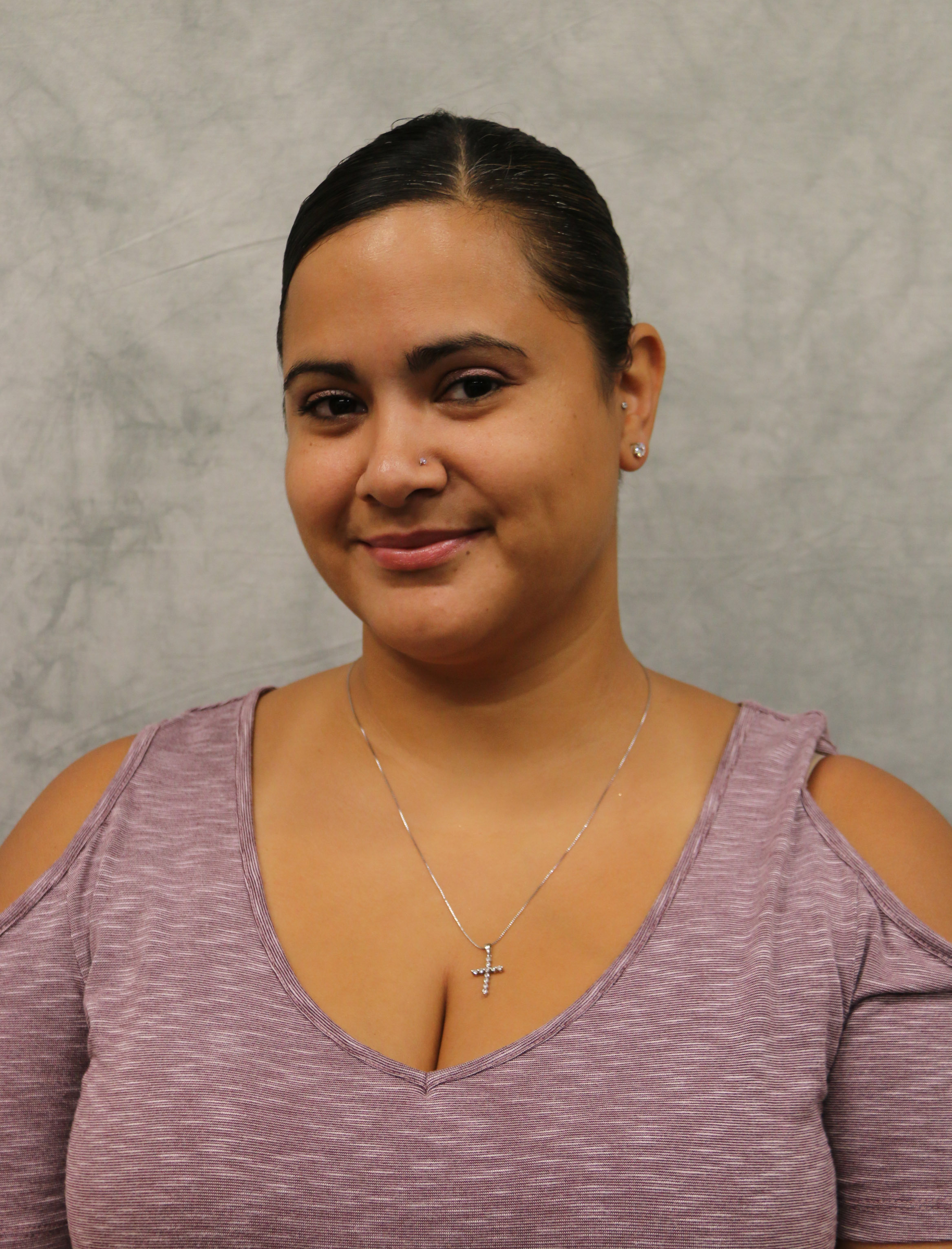
Nov 9, 2018 | Faculty + Staff
By Maile Winterbottom ’21
This fall, the Pingry community welcomes Ms. Xiomara Babilonia as the new Middle School art teacher. She teaches sixth and seventh-grade art, introductory art courses where students are able to learn new techniques using different materials. Before coming to Pingry, she taught art in the Camden school district for fifteen years. She received her B.A. in sculpture at Rutgers University and then went on to the University of the Arts in Philadelphia where she got her M.A. in ceramics. In the spring, she plans to be the assistant Middle School softball coach. “I love softball; I played in high school and my daughter plays little league,” she adds excitedly.
When speaking about why she became a teacher, she said, “I’ve always loved to share my knowledge and inspire excitement in other people.” During her time teaching in Camden, she taught a class for local high school students at the Tyler School of Art where she helped them find out if art was a path they wanted to pursue. “It was kind of a program for them to feel it out,” she adds. Ms. Babilonia loves Pingry so far, describing it as “a very cool environment– there’s a lot of support from the teachers and staff.”
One other thing Ms. Babilonia did before Pingry was help run a project called the ‘Claymobile’; “it was a van filled with all types of supplies for ceramics, and we would go to different schools, and do ceramics projects with the students.” She says that this program led her to discover that she wanted to be a teacher. Her main goal for this year is to try to expand the Middle School ceramics program – in the future, she hopes that more attention can be brought to Middle School ceramics, and even plans to advocate for the creation of a Middle School ceramics studio.
The first project she did with the students this year was, unsurprisingly, a ceramics project. Right away, the students “started getting dirty and creative.”
One of her main interests outside of school is traveling. She also says that she is a big foodie, and loves to combine these passions: “Wherever I travel, I love to find really good eats, places that are off the beaten path.”
She has an eleven-year-old daughter and a six-year-old son. Ms. Babalonia also runs a party entertainment business where she does henna, face paint, and other exciting art forms. Ms. Babalonia is “excited to get [her] feet wet and learn the ins and outs of Pingry!”.
Nov 9, 2018 | Editorial, Opinion
By Alessia Zanobini ’19
I firmly believe that involvement in government and politics should start from a young age, whether that consists of reading the newspaper or running for student government. Early political engagement leads to informed voters and experienced legislators. Even if this commitment is just at a school-level, I am proud of my peers for being involved in a democracy. However, last year’s student body presidential election and our subsequent senior class presidential election made me rethink if everyone was truly involved. As I looked at the students running, I couldn’t help but wonder: “where are the female candidates?”
For the newly elected 2018-2019 student government, girls hold just five of the twenty-two seats, and last year, each class had roughly the same ratio. As we go higher up in student government leadership positions, the number of women decreases even more. Last year, only one of our Upper School class presidents and vice presidents was female and for 2018-2019, all the class or vice presidents are male. Most strikingly, in the 44 years Pingry has been co-educational, we have only ever had four female student body presidents. Last year’s all-male group of candidates for student body president as well as the candidates for Form VI’s class president were clearly not flukes and represent part of a larger, problematic pattern here at Pingry.
When I talked about the lack of women in student government to fellow peers, many told me that had more women run, there would be more women on student government. There weren’t many girls on their class ballots in the first place. Why weren’t women running, then?
First, I had to personally reflect on why I hadn’t run. After all, I am knowledgeable and interested in politics and government. I hold similar leadership positions as the male presidential candidates and I’m involved in the same variety of activities. Thus, shouldn’t I share some of the guilt, as I am a qualified woman who voluntary chose not to run? My reasoning for not running was this: by election season – mid-Junior year – I had already committed to other leadership roles (Journal Club and the Student Diversity Leadership Committee, for example) and I’m more interested in those organizations than I am in student government. I didn’t feel discouraged nor did I lack the confidence to run; rather, I had already dedicated myself to other activities.
When I spoke to other women in the community, their answers sounded similar to mine. Allie Matthias (Form VI), a class representative, was hesitant to even run for student body president because of the potential stress and time commitment. Ultimately, she was the only female in our grade on the ballot, in part so that there “would be a woman on stage.” Cassie Yermack (Form VI) also didn’t run for student government because she didn’t think she’d win and didn’t want to be one of the only people who didn’t get elected (ten people were running for eight spots). The two most common answers I heard from people were “I’m too busy” or “I wouldn’t win.”
Clearly, none of my female peers are to blame individually.. In fact, no one I interviewed stated that sexism or systemic challenges held them back from running or being elected. However, a trend emerged of women saying that they didn’t run because they’d never be elected. Perhaps women lacked the confidence to run in the first place – or more likely, the lack of women on our current student government discourages women from running in the future. Several women told me they think that only a certain type of woman — polite, intelligent, and uncontroversial, for example — gets elected to student government, if at all. If a potential candidate feels she doesn’t fit this image, she might not run.
I argue that this issue goes beyond the Pingry community, though. How will Pingry women be encouraged to run if they don’t have the role models in our real government? In the U.S. government, there are currently 84 women in the House of Representatives (out of 535 members) and only 22 women in the Senate (out of 100 members), making around 20% of the members of congress women. Yermack mentioned that when she pictures a politician, she pictures “a man like Ted Cruz or Richard Nixon – white, commanding, and opinionated. That image is just not female.” Maybe women at Pingry feel discouraged from pursuing a career in politics and therefore spend time pursuing other college preparatory and career-oriented activities. This can also explain the other reasoning for not running (the “too busy” argument). In this case, perhaps Pingry has done all it can to encourage gender equality within the community, and the problems reach further than any one school can solve.
I am hesitant to label Pingry student government, or Pingry itself, as sexist; at the same time, I cannot ignore the obvious pattern of young men controlling our student government. The lack of women in student government hurts the whole community, as the group of leaders have a duty to represent the student body, and without women, that representation is impossible to achieve. As always, I encourage everyone — especially my fellow women — to get engaged in politics in whatever way they can to benefit themselves, their female peers, and the larger community.
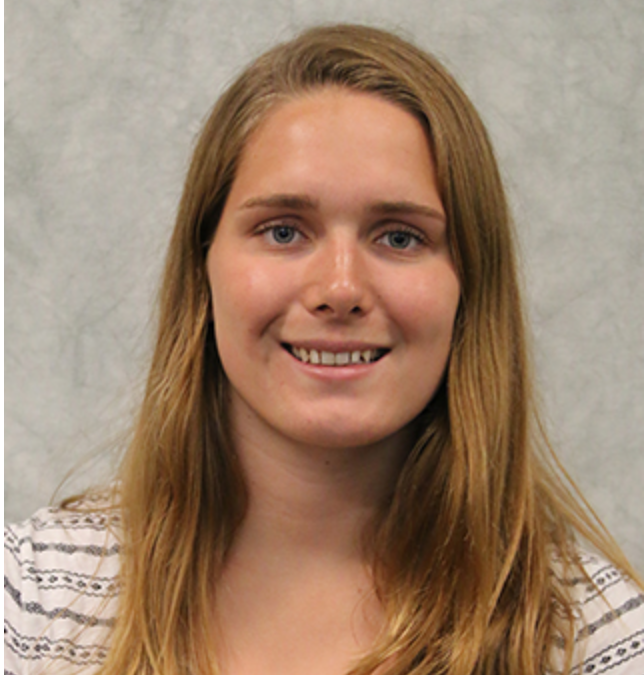
Nov 9, 2018 | Faculty + Staff
By Josie Alston ’21
This school year, Ms. Madeline Zimmerman joins the Middle School as a 7th and 8th grade science teacher. She will also be the assistant coach of the Middle School swimming and water polo teams.
Ms. Zimmerman earned her B.S. in Environmental Studies at Yale University with a concentration in Biodiversity and Conservation. Her motivation in pursuing her major was “the passion of others in the major, each class ending with a sense of hope, and a group of people coming together to want to make a world a better place.”
Ms. Zimmerman has been a swimmer since she was five years old and was on Yale’s swimming and diving teams. She studied abroad in Tanzania at the School for Field Studies’ Center for Wildlife Management, worked at a food supply company in Rwanda, and researched conservation efforts of the elephant in Thailand.
When asked why she chose to travel so much, Ms. Zimmerman responded, “I just love immersing myself in new cultures and learning about the world and seeing how different it is from the US.” She thinks it is important to “take away the things that I think are great from those cultures and try to implement them into my life.” From a more environmental perspective, Ms. Zimmerman acknowledges that “environmental challenges can be different throughout the world” and she finds it interesting to see other cultures’ perspectives on these issues.
In her free time, Ms. Zimmerman enjoys working out, taking dance classes, hiking, and spending time with her friends and family. Notably, she climbed Mount Kilimanjaro in 2016.
One of the most interesting things she’s done in her adult life, according to Ms. Zimmerman, was building a model designed to see how climate change would affect elephants’ prime habitats. She found that climate change is actually healthier for the animals and would create a more hospitable environment for them. This instance stands out for her because it was “a glimmer of happiness within the sad topic [of climate change].” Her experience has shaped her as a teacher because “it helps me see that things aren’t always black and white. Even though something could seem bad or something can seem great, you have to always consider that there are other factors that are going on that can change the way that you view something.”
Ms. Zimmerman was quick to share that she loves Pingry because it is such a “diverse and exciting community” where the people are passionate and the faculty and staff are incredibly welcoming. She loves that the students have energy to spare and “every day, I’m doing something new.” She hopes that as a teacher she will be able to share her love for science and encourage her students to have a feeling of wonder and curiosity for the world around them.







